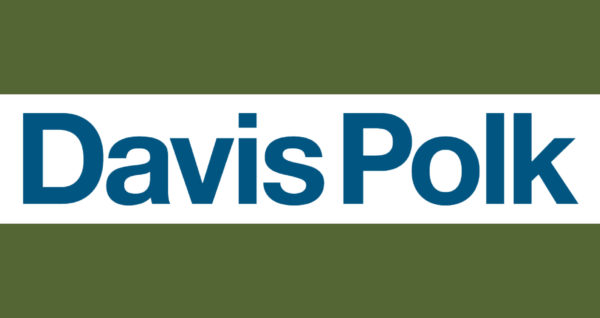At this year’s Above & Beyond Awards, we’re honoring a team of attorneys from Davis Polk & Wardwell, LLP for their dedicated advocacy on behalf of their client, “Jie,” in her successful T-Visa application. Read to learn more.
Sam Zeidman is a Software Developer at Red Rabbit, LLC in New York. From 2012 through 2017 he was an associate at Davis Polk & Wardwell in the Litigation Department.
—
At this year’s Above & Beyond Pro Bono Achievement Awards and Benefit, Sanctuary for Families is honoring a team of attorneys from Davis Polk & Wardwell, LLP for their dedicated and powerful advocacy on behalf of their client, “Jie,” in her successful T-Visa application. The team consisted of former associate Lisa Doolittle, Associates Hanbing Zhang and Iris Hsiao, Partner Po Sit, and Special Counsel for Pro Bono Sharon Katz.
A Nexus of Vulnerability: From Domestic Abuse to Trafficking
Jie was living in China, married with children to an abusive husband. After their divorce her ex-husband took custody of their children because Jie lacked the financial resources to raise them. Jie sought employment so that she could earn money to win back custody of her children. She found what she thought was a promising job cleaning houses in the U.S. Despite not speaking English and having no connections in the U.S., she took the job.
Upon arrival in the U.S., it immediately became clear to Jie that the job she was promised was a sham. Instead, she was expected to engage in sexual acts in hotels and massage parlors. From the moment of entry to the U.S., every aspect of Jie’s life was controlled by her traffickers; unable to speak the language and with no one to reach out to, she felt helpless.
Despite the painful and frightening circumstances, Jie persisted in seeking a way out and never gave up hope that she would one day escape her traffickers.
After an Arrest, Another Legal Avenue
Jie was arrested on vice charges and was referred to New York’s Human Trafficking Intervention Court, where she was referred to Sanctuary’s Queens Trafficking Intervention Pro Bono Project (QTIPP) that, among other things, allowed her to meet with lawyers to discuss possible legal and immigration options.
Lisa Doolittle and Hanbing Zhang were the QTIPP volunteer attorneys for Jie’s legal consultation. Doolittle credits Zhang, a native Mandarin speaker, for forging a strong connection in a short time, which helped them gather enough information to determine that Jie was a good candidate for a T-Visa and quickly volunteered to represent her. Lori L. Cohen, the Director of the Anti-Trafficking Initiative at Sanctuary for Families, supervised the team and agreed Jie had a compelling case:
“This is a woman who was clearly trafficked, promised a job that didn’t exist, charged fictitious fees, kidnapped, held in a hotel, and raped by men paying to have sex when she did not agree.”
After an extensive series of meetings with Jie to establish their relationship, the DPW team began to advocate on her behalf as she cooperated with law enforcement into the investigation, arrest and prosecution of her traffickers, an emotionally challenging process. Sharon Katz noted that Jie “was initially very wary, even distrustful” of her new attorneys, understandable given her situation.
In addition to participating as a victim-witness in the criminal case, she was skeptical about the US immigration system, particularly the T-Visa process; like many other victims, she already had engaged an attorney who had filed an asylum application and said it was making progress. As Doolittle put it, “In her mind, why would attorneys who worked for free be high quality attorneys, especially compared to her paid attorney who repeatedly assured her he was making advancements in her asylum case?” (The team did not believe the asylum claim would prevail. Cohen said it was common for unscrupulous attorneys to charge women like Jie exorbitant fees up front but deliver very little. Because of the fees, women are drawn deeper in debt and may feel they need to continue working at massage parlors in order to pay it off.)
Meanwhile, the T-Visa process took time and required Jie to share information about some of the worst experiences of her life in great detail and to overcome cultural norms against speaking out about one’s bosses and revealing shameful events. Moreover, she worried about retribution.
Patience and Persistence from Attorneys and Client
Over the course of a year, with great perseverance, the DPW team gradually gained Jie’s trust. Cohen said the team’s approach was key to making her comfortable with the process.
“They treated her with dignity, respect, patience, and compassion. Their humanity for this woman really came through as they quickly put together a strong, moving, powerful application.”
For their part, the attorneys believe Jie herself deserves most of the credit. Zhang stated,
“She was hesitant to share her story but also believed it was wrong for women to be treated as she was. She had a strong sense of justice and felt that the situation could not go on forever.”
Jie’s T-Visa application was eventually granted and her traffickers convicted. The effect on Jie was noticeable. Katz said,
“A different part of her came through. She was smiling and outgoing, a change from the initial meetings.”
Iris Hsiao, who is working on the derivative visas for Jie’s children, noted that,
“[Jie] seems extremely hopeful and has more confidence in the process. Before she thought the application was pointless and would take forever, but she saw that waiting paid off in the end.”
As Doolittle put it,
“A burden was lifted. She has T-visa status and no longer has to live every day with the fear over her head that she will be sent back to China.”
—
Join us at our Above & Beyond celebration on November 13, 2018, at the RUMI Event Space, 229 W 28th St, New York, New York as we honor this Davis Polk team’s outstanding pro bono work. You can buy tickets here.
If you can’t join us, but would like to support Sanctuary for Family’s work, please consider making an Above & Beyond donation here.




